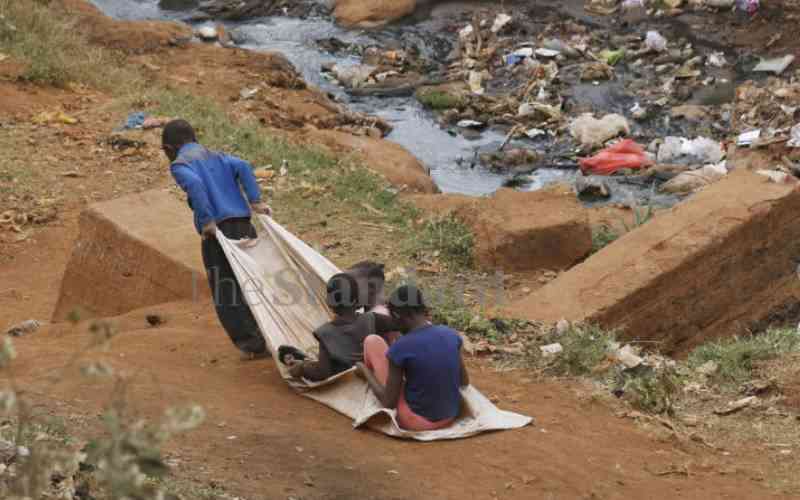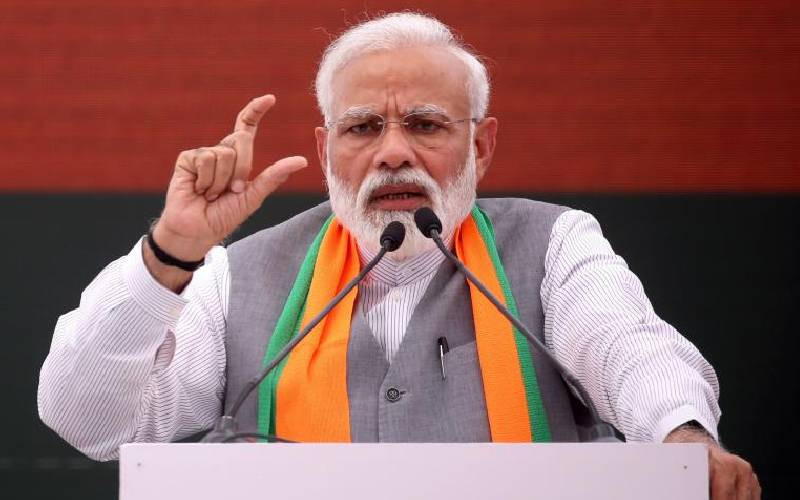
Kenyan motorists already hammered by the high cost of fuel face even more pain after the International Monetary Fund (IMF) cautioned the government to limit the use of fuel subsidies.
The IMF says the Ruto government should use sparingly funds from the fuel stabilisation programme.
The Treasury has subsidised diesel and kerosene a number of times amid consumer outcry.
Analysts said earlier the intention to stabilise fuel prices was not surprising as allowing consumer fuel prices to swing too much would damage economic confidence, with the fear of inflation slowing productivity.
The removal of the remaining subsidies would, for instance, see the cost of diesel, which is used to power commercial vehicles and kerosene, used mainly by low-income homes for cooking and lighting, go up significantly.
But now the IMF is cautioning the government on better management of the subsidies and their complete overhaul by March this year as part of its stringent conditions for release of its billions.
“The authorities agree on the need to sustain efforts to align domestic fuel pricing decisions with budgeted resources,” said the IMF in its recent update on Kenya.
“Specifically, the Energy and Petroleum Regulatory Authority (Epra) will seek confirmation from the National Treasury and the Ministry of Energy and Petroleum of the availability of resources for price stabilisation purposes before announcing the prevailing domestic fuel prices every 15th of the month.”
Additional financing
According to the IMF, in the event a decision is taken to stabilise prices beyond what can be financed by budgeted resources, the National Treasury will be required to indicate the sources of additional financing (such as budget reallocation, borrowing) and Epra should communicate the financial implications of the domestic price decisions.
“In addition, the National Treasury and Ministry of Petroleum will review by end-March 2024 the governance structure of the Petroleum Development Fund with a view to ring-fencing resources budgeted for price stabilisation and improving transparency of their management,” said the IMF.
Restless Kenyans want the Ruto administration to put measures in place to shield consumers and companies from the full impact of surging energy and food costs.
President Ruto faces the dilemma of trying to reduce the fiscal hit from vast subsidy bills on strained public finances placed by the previous government, and the need for economic reform amid the risk of rising discontent and social unrest if the economic situation gets worse.
He scrapped the subsidies on petrol and maize flour on September 13, 2022 when he came into office and reduced those for diesel and kerosene, saying they were unsustainable.
The government, however, later signalled a U-turn on ending the fuel subsidies amid rising pressure to bring down the cost of living.
Treasury subsequently said it will buttress the fuel prices stabilisation mechanism through legal reforms, marking a departure from an earlier plan to remove the kerosene and diesel subsidies in a bid to trim the fiscal deficit.
“In order to stabilise consumer prices against unpredictable swings in global oil prices, the government will set up a legal framework to ring-fence the Fuel Stabilisation Fund,” revealed the Treasury in its 2023 Budget Policy Statement.
Despite the subsidies, Kenyans have questioned why the prices of fuel keep going up while those in neighbouring countries were falling - and the cost of crude oil was going down globally
In December, the energy industry regulators in Tanzania and Rwanda reduced the cost of fuel, citing the lower cost of petroleum products in the global market.
In the two countries, pump prices are hovering at around Sh200 per litre for super petrol, a major difference with the Sh217.36 per litre that residents in Nairobi have to pay at the pump and as high as Sh231.36 a litre in Mandera.
The difference would have been even much bigger had the government not applied a Sh12 subsidy, which would have seen a litre of super petrol reach Sh229.37 in Nairobi.
 The Standard Group Plc is a multi-media organization with investments in media
platforms spanning newspaper print operations, television, radio broadcasting,
digital and online services. The Standard Group is recognized as a leading
multi-media house in Kenya with a key influence in matters of national and
international interest.
The Standard Group Plc is a multi-media organization with investments in media
platforms spanning newspaper print operations, television, radio broadcasting,
digital and online services. The Standard Group is recognized as a leading
multi-media house in Kenya with a key influence in matters of national and
international interest.
 The Standard Group Plc is a multi-media organization with investments in media
platforms spanning newspaper print operations, television, radio broadcasting,
digital and online services. The Standard Group is recognized as a leading
multi-media house in Kenya with a key influence in matters of national and
international interest.
The Standard Group Plc is a multi-media organization with investments in media
platforms spanning newspaper print operations, television, radio broadcasting,
digital and online services. The Standard Group is recognized as a leading
multi-media house in Kenya with a key influence in matters of national and
international interest.










